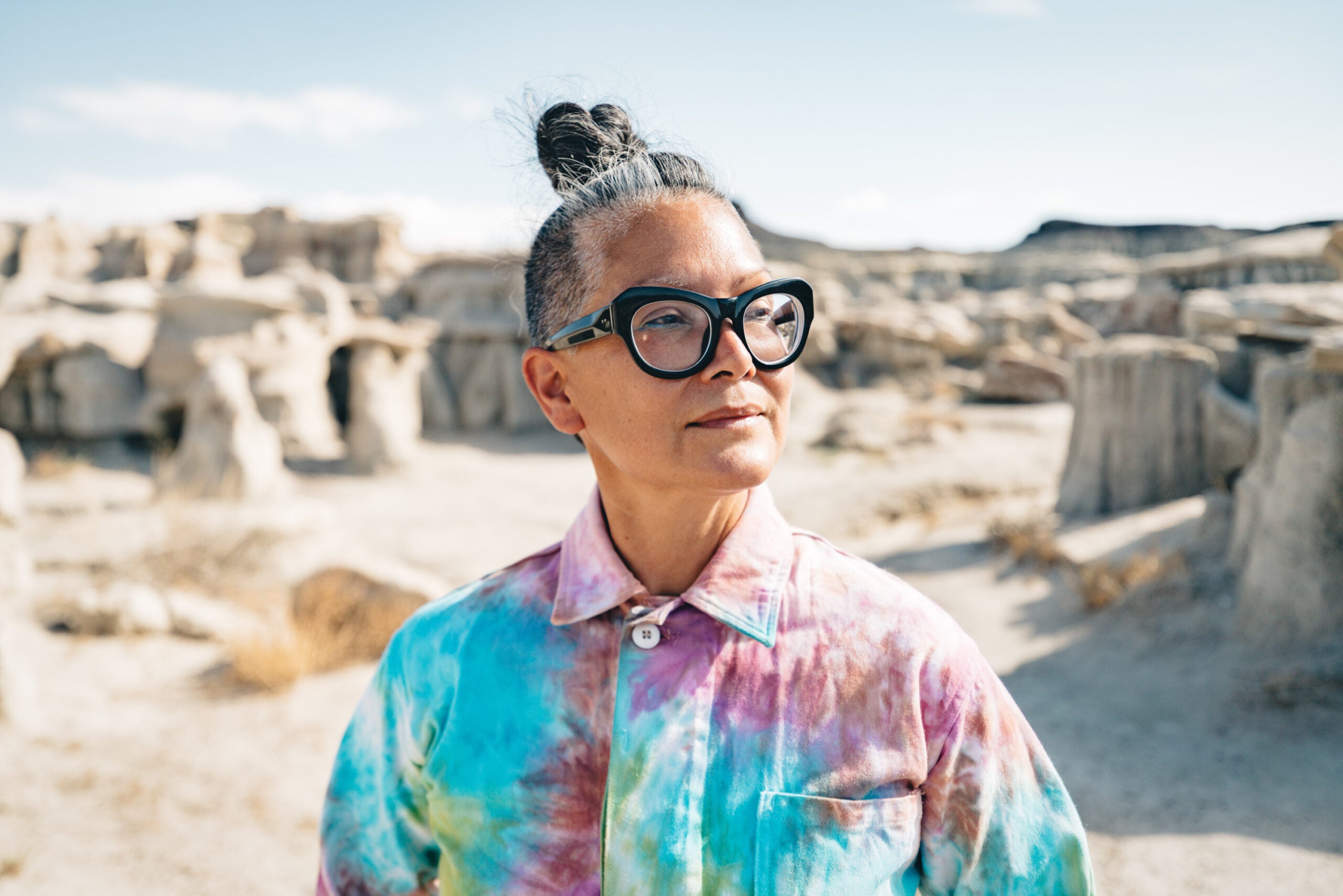How Fashion Designer Amy Denet Deal Connects with Her Navajo Heritage Through Food

(Photo: Courtesy Amy Denet Deal)
Amy Denet Deal built a successful career designing for huge brands and fast fashion retailers – until she reached a point when she knew something needed to change.
“Being a mother made me realize that I could not continue working for corporations that didn’t produce goods in sustainable methods. It was important for me to shift my own life to create a better future for [my daughter],” Deal says.
In 2018, the time for that shift arrived. Born to a Diné (Navajo nation) mother but raised by a non-Native family, Deal felt drawn to reconnect with her lineage. She left her corporate career and L.A. home behind and moved to New Mexico to reintegrate with the Navajo community.
A food-lover and avid cook, Deal quickly realized that the realities of life on the reservation were dramatically different than what many Americans take for granted. Many Navajo homes lack running water or electricity, and the closest grocery store may be up to three hours away.
“There’s definitely a lot of pre-planning that goes into food and cooking for anyone living on the reservation,” she says. “The process of preparing food is intentional. You need to consider buying in bulk and consider the shelf life of each item. This pre-planning made me appreciate fresh foods far more and buying local produce when possible at the local markets.”
Changes to how she cooks and eats have gone beyond careful stocking of ingredients.
“I’ve found myself incorporating traditional foods as staples in my diet, such as blue corn mush, which is comprised of ground blue corn, a pinch of juniper ash, prepared on the stove, similar to oatmeal,” she says. “I find that when I eat ancestral foods, blue corn, sumac berries, pinon nuts, etc, I feel better. My ancestors were experts in harvesting and eating in harmony with the landscape. The role that food plays is that it’s a way to connect with our families and share our stories, when pinons are harvested, and connect over food.”
Amid the pandemic, Deal stepped into action, raising awareness about how COVID-19 impacted people living on reservation, bringing together her fashion contacts and her own brand to make masks and create resource kits, and staging fundraising events that brought in hundreds of thousands of dollars in aid.
She hopes to make a similar impact on other issues facing the Navajo nation, including environmental destruction and food insecurity.
“Food sovereignty is important especially to Indigenous communities, allowing us to have access to our ancestral lands and harvest our food responsibly. In returning to these food systems, we will be better nourished,” she notes. Adding that, “for other communities, it’s important to consider programming for individuals to harvest their own food, such as community gardens.”
That sense of sustainability and connection to tradition and the planet also inform the fashion line she launched after moving to New Mexico, now known as 4KINSHIP.
“I started 4KINSHIP as a way to show a different pathway. We upcycle goods already here on the planet,” she says. “I also wanted my daughter to have more connections to our Diné heritage. So, we made the move to come back to our homelands. The shift in design came intuitively. The desert southwest inspired many of my color palettes. There was a certain harmony that I wanted to strive for and create a sustainable lifestyle that was in harmony with the land.”
RELATED: Hongos Forever: Modern Vegan-Mexican Cuisine Chefs ‘Reawaken the Ancestral Memory’ with Mushrooms
Get more of what you love from VT. Follow us on Instagram, Facebook, and Twitter, and sign up for our email newsletters.